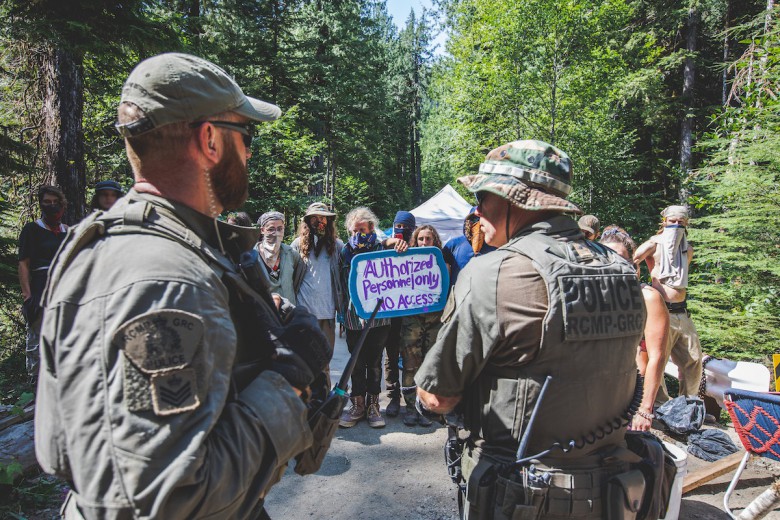Promotional videos by one of Canada’s largest police and military suppliers appear to show officers firing and handling a range of heavy-duty weaponry and equipment – and experts say it’s a symptom of rising police militarization.
On February 19, 2020 the Ontario Tactical Advisory Board (OTAB) – an association of 36 tactical “security” and police units formed by the Ontario Association of Chiefs of Police – made a post on its website promoting Rampart International’s 2020 Range Day expo.
Promotional materials for the event describe it as “Canada’s premiere Range Day and expo for Military and Law enforcement.” According to Rampart’s 2017 Range Day promotional video, up to 500 law enforcement, military, corrections, and “related personnel” registered to fire guns, and test new policing, military, and “tactical equipment.” Asked about the post, a representative of OTAB explained, “they’re a sponsor so we definitely try to support our sponsors” before hanging up.
Promotional videos on the company’s YouTube channel feature interviews with military and police suppliers, intercut with images of guns, ammunition, batons, and tear gas. The videos also appear to feature images of soldiers and police officers making use of new equipment at Stittsville Shooting Ranges in Ontario.
In audio obtained by Briarpatch, a Rampart representative is heard saying members of the Royal Canadian Mounted Police and provincial police officers typically attend the event.
Likewise, Rampart International sales manager Joe Gajcevic tells the camera in the company’s 2016 promo video: “We had participants all the way from the federal level, all the way down to the provincial and municipal level – all different levels of law enforcement and military here.”
In all the videos, police logos are seen on participants’ jackets, with several vendors remarking how important it is that they get to meet the “end users” in law enforcement, corrections, and the armed forces.
“Many of those tools belong in a war zone but are marketed as sine qua non to policing.”
University of Alberta sociology professor Temitope Oriola says events like Rampart’s Range Days help incentivize further equipment purchases.“A patron-client relationship develops which privileges weapons manufacturers. Many of the tools come with after-sale services, training, orientation, and certification. The consequence is that law enforcement becomes increasingly cast in the image of weapons manufacturers such as Rampart International.”
Oriola adds that the mixing of police and military vendors and the mixing of police and military “end users” at expos like Rampart’s can be dangerous. “Many of those tools belong in a war zone but are marketed as sine qua non to policing,” he says. “Militarization of policing is one of the consequences of such events.”
Following the police killing of George Floyd in Minneapolis on May 25, and the death of Regis Korchinski-Paquet in Toronto on May 27, protesters across the world have been calling for an end to police brutality against Black and Indigenous people, with various calls to defund, demilitarize, and disband police forces across the continent. Alongside a 50 per cent reduction in the Toronto Police Service budget, one of the 27 demands released by Black Lives Matter - Toronto was to “Remove all weaponry from police and other law enforcement, including tasers, batons, firearms, rubber bullets, tear gas, pepper spray, and sound canons.”
Nickita Longman, an organizer with the anti-policing group Winnipeg Police Cause Harm, says “As property becomes more and more protected at a higher standard than community, we see bloating police budgets, and in turn, an increase in militarized weapons.”
“Any police force that invests money into militarized weapons only further validates the concept that police protect property over people,” she adds.
A review of each annual range day’s promotional videos finds the following:
Each promotional video makes it clear the event is limited to current law enforcement, military, corrections, and what Rampart calls “related” personnel – primarily private security and emergency services. And registration for the 2021 Range Day – with 2020 having been cancelled due to COVID-19 – requires a relevant government division email address. The registration page notes that personal email accounts are not accepted.
Asked for further comment, representatives of Rampart declined. Sales manager Alex Pinos says “Rampart does not discuss details regarding our customers, contracts, or events.”
A spokesperson for the Ontario Provincial Police confirmed representatives have attended Rampart’s Range Day events. Staff Sgt. Carolle Dionne says “We were unaware that RAMPART had images of our members in their video,” and confirmed officers attended. The spokesperson says further “The OPP (Provincial Police Academy) supports trainers attending police equipment trade shows for the purposes of research and development of all police safety equipment. Some trade shows have practical demonstrations with this equipment and may offer attendees at the show an opportunity to test the equipment.”
Additionally, the OPP says it doesn’t allow its logos to be used for promotional purposes and requested the video be taken down. As of July 2, Rampart’s range day promotional videos have been removed from their YouTube channel, though videos for the 2014, 2015, and 2016 range days remain on its Vimeo channel.
“Any police force that invests money into militarized weapons only further validates the concept that police protect property over people.”
Representatives of the Kingston Police service confirm that members of its division were present at Rampart’s 2016 Range Day. One sergeant was even interviewed for the company’s Range Day promo reel. A representative of Kingston Police tells Briarpatch, “Members of the Kingston Emergency Response Unit were attendees like many other police services present, for the purposes of seeing products offered for law enforcement tactical purposes.”
The spokesperson explains that “The event provided our Emergency Response Unit with the ability to observe, compare, and test various products applicable to their job positions, as well as network with other police services.”
Likewise, representatives of the Parliamentary Protective Service – which provides physical security for parliamentarians and others within the Parliamentary Precinct in Ottawa – are featured in the 2018 promo video. A PPS spokesperson confirmed “We are an armed protective service, and therefore it is our reasonability to do the appropriate research.”
The RCMP's Intellectual Property Office has never dealt with or received a request from Rampart International for permission to use our Intellectual Property in their promotions. The IPO will be following up further with Rampart International on the use of our crest. It is not uncommon for employees to attend events or trade shows to learn about new products available on the markets, however, the RCMP adheres to government of Canada procurement policy to ensure that, where applicable, products are competitively purchased and meet our requirements.
While RCMP logos are featured in all of the company’s uploaded promotional videos, an RCMP spokesperson told Briarpatch that "The RCMP's Intellectual Property Office has never dealt with or received a request from Rampart International for permission to use our Intellectual Property in their promotions. The IPO will be following up further with Rampart International on the use of our crest. It is not uncommon for employees to attend events or trade shows to learn about new products available on the markets, however, the RCMP adheres to government of Canada procurement policy to ensure that, where applicable, products are competitively purchased and meet our requirements."
A look at recent tenders shows the RCMP have signed nine contracts with Rampart with values over $10,000 since 2015. Those contracts were for, among other things, small arms and ammunition. Most recently, Rampart signed a contract with the RCMP to provide it with 40mm sponge bullets for an unknown sum. According to the RCMP, these were manufactured by Defense Technology Products.
Representatives of the other divisions featured in the promo videos did not respond to multiple requests for comment.
University of Winnipeg criminal justice professor Kevin Walby notes, in the promotional videos, “you have military and police training together with the same types of tactics and ambitions.”
Walby says training events and expos of this sort are increasingly common for police forces. A review of police budgets, he says, finds “oftentimes, they’ll have things like conference fees, conference travel included. And it doesn’t necessarily say for how many personnel – and that’s for these kinds of training events and these kinds of expos.”
"Police get to decide if they are going to use these tactics, if they’re going to use these weapons. So, that’s why we’ve started to see them not just in these videos and expos but also in actual policing.”
Current rules and court decisions like 2010’s R. Vs. Cornell, Walby says, insist police should have the “latitude” to make procurement and operations decisions, with few safeguards. “The law of the land now is what the decision called ‘police latitude’ which means police get to decide if they are going to use these tactics, if they’re going to use these weapons. So, that’s why we’ve started to see them not just in these videos and expos but also in actual policing,” he explains.
A 2016 review by Ploughshares Monitor found military tactics and training procedures have become increasingly common among police. So too, the report finds, has equipment initially made for military purposes, like Long Range Acoustic Devices (LRADs) – also known as “sound cannons,” seen deployed against George Floyd protesters in Portland – to Light-armoured Vehicles (LAVs) – compared in media reports to those deployed during protests in Ferguson.
More recently, the Tyee reports, Canada’s military donated 2,012 surplus “assault rifles” to 68 police forces across the country.
July 15, 2020: This story was updated with comment from the RCMP, and edited to reflect that the the 40mm sponge bullets that the RCMP purchased from Rampart were manufactured by Defense Technology Products, not Safariland.



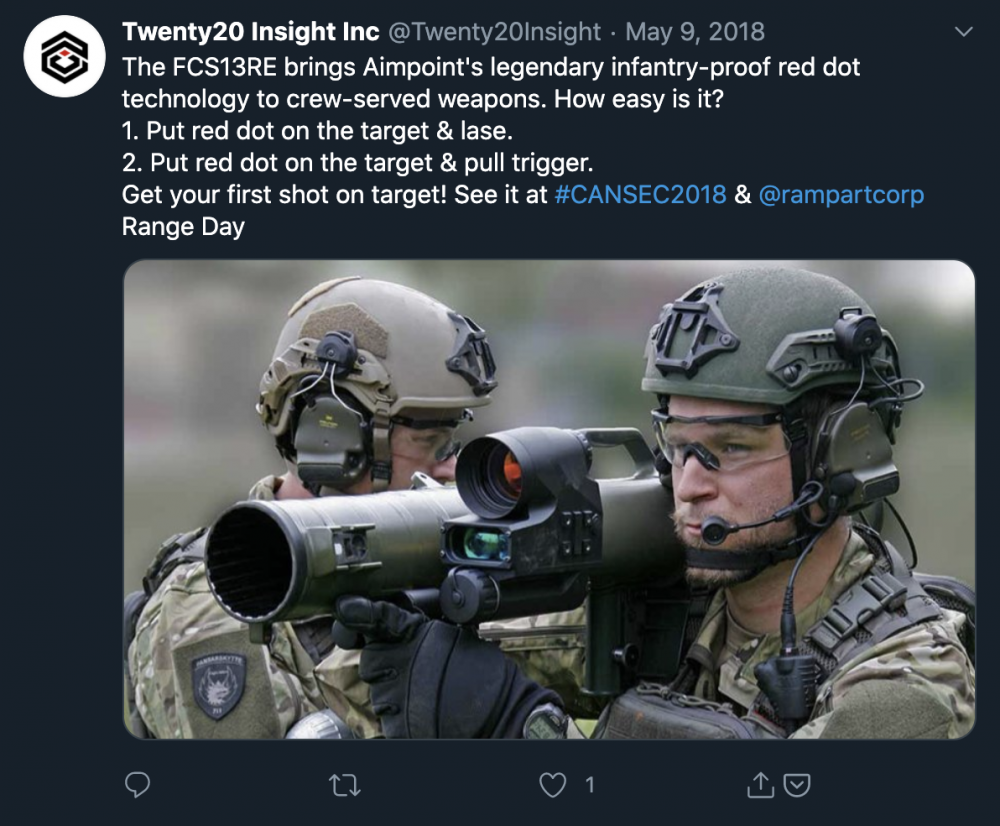

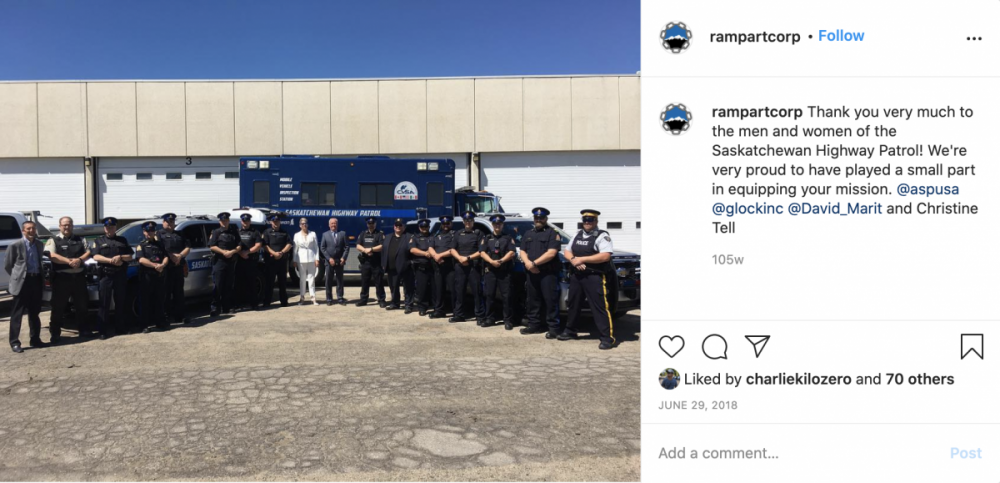
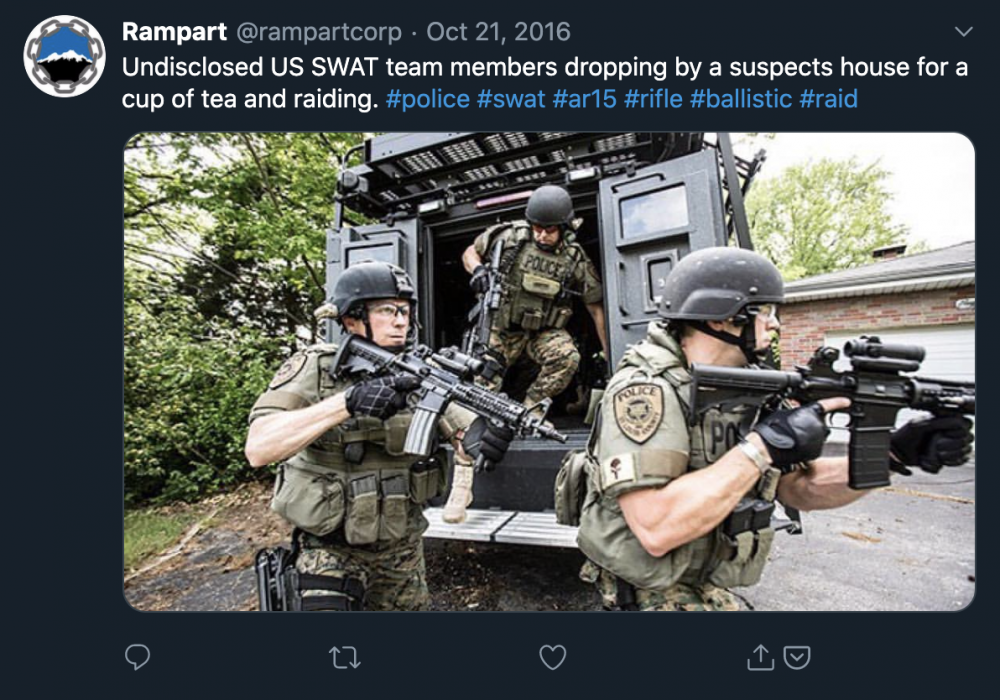
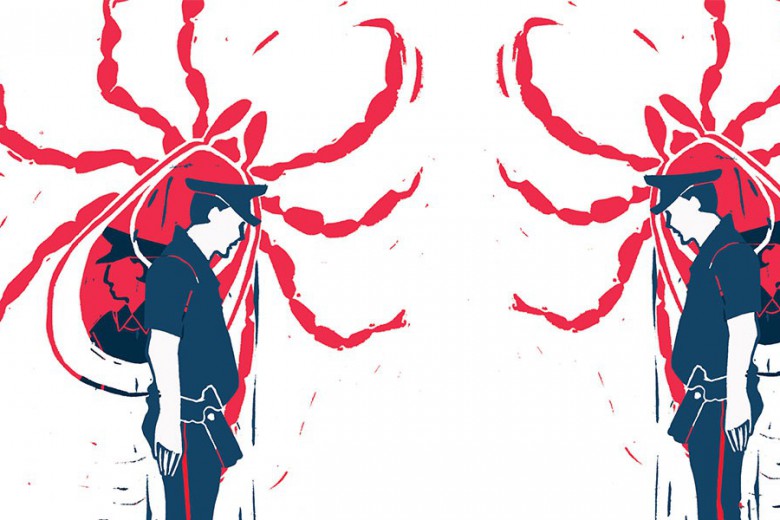
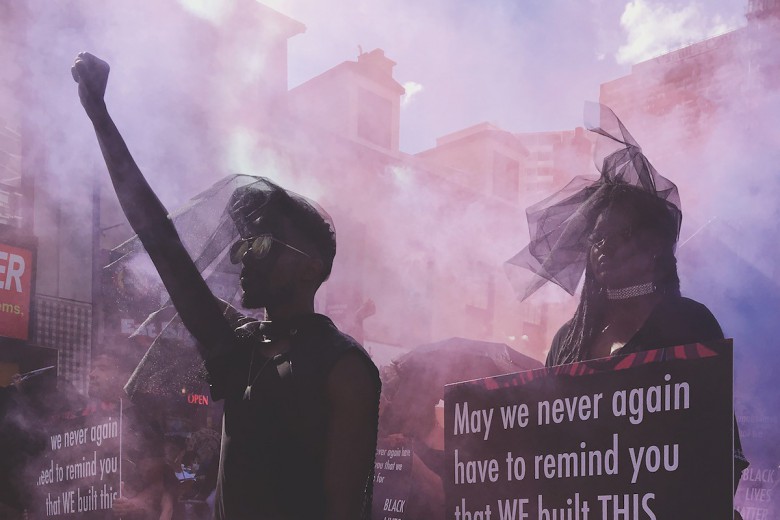
_780_520_90_s_c1.jpg)
